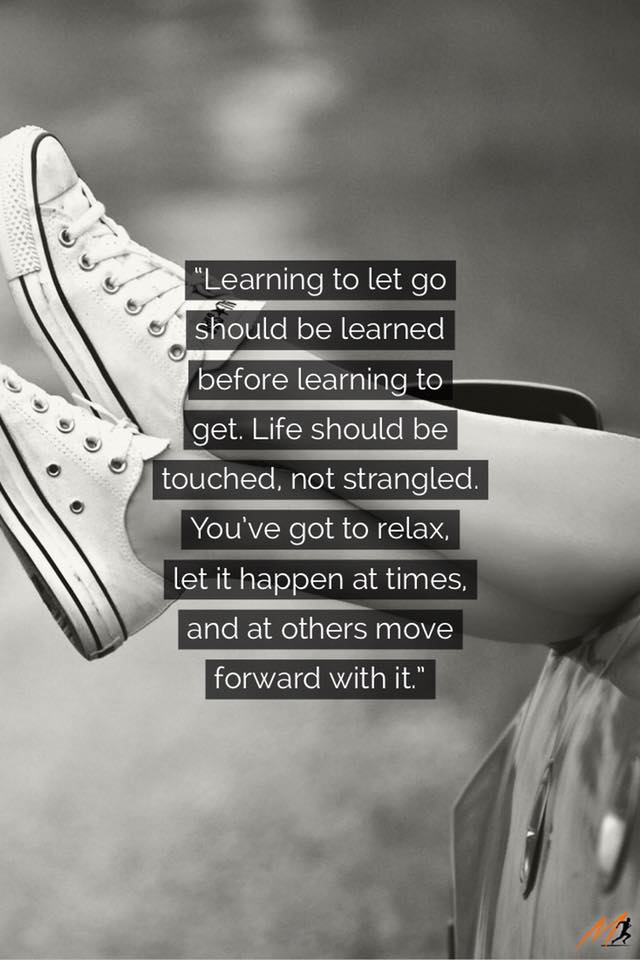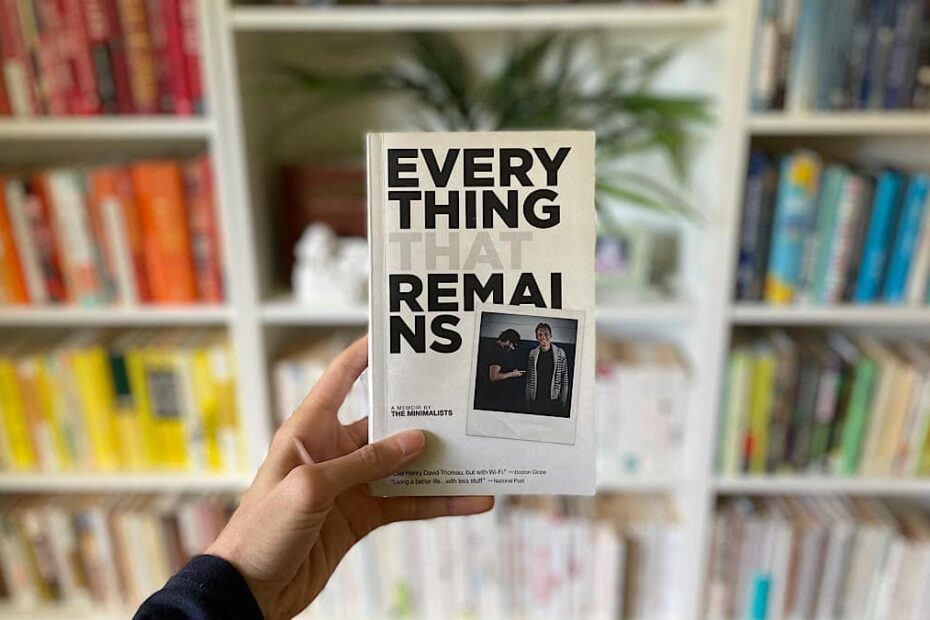“You can be rich by having more than you need, or by needing less than you have.” ~ Jim Mott, via Money: Master the Game
12 Minimalist Quotes from Everything That Remains by The Minimalists
Excerpt: Minimalism is about reprioritizing what ‘fills’ with what ‘fulfills’ your life. These Minimalist quotes from Everything That Remains can help.
Read More »12 Minimalist Quotes from Everything That Remains by The Minimalists
Everything That Remains [Book]

Book Overview: What if everything you ever wanted isn’t what you actually want? Twenty-something, suit-clad, and upwardly mobile, Joshua Fields Millburn thought he had everything anyone could ever want. Until he didn’t anymore. Blindsided by the loss of his mother and his marriage in the same month, Millburn started questioning every aspect of the life he had built for himself. Then, he accidentally discovered a lifestyle known as minimalism…and everything started to change. Everything That Remains is the touching, surprising story of what happened when one young man decided to let go of everything and begin living more deliberately. Heartrending, uplifting, and deeply personal, this engrossing memoir is peppered with insightful (and often hilarious) interruptions by Ryan Nicodemus, Millburn’s best friend of twenty years.
Post(s) Inspired by this Book:
- 12 Minimalist Quotes from Everything That Remains by The Minimalists
- Happy But Never Satisfied – Motivational or Misleading?
- The Minimalists’ Quote on Changing The People Around You (Beyond the Quote 34/365)
“Success for me has little to do with money or possessions or status. Rather, success is a simple equation: Happiness + Growth + Contribution = Success. That’s the only kind of success I know. Hence, I want to partake in work that makes me happy, work that encourages me to grow, work that helps me contribute beyond myself. Ultimately, I want to create more and consume less. Doing so requires real work.” ~ The Minimalists, Everything That Remains
“Life isn’t meant to be completely safe. Real security, however, is found inside us, in consistent personal growth, not in a reliance on growing external factors. Once we extinguish our outside requirements for the things that won’t ever make us truly secure—a fat paycheck, an ephemeral sexual relationship, a shiny new widget—we can shepherd our focus toward what’s going on inside us, no longer worshiping the things around us.” ~ The Minimalists, Everything That Remains
“Understand, every moth is drawn to light, even when that light is a flame, hot and burning, flickering, the fire tantalizing the drab creature with its blueish-white illumination. But when the moth flies too close to the flame, we all know what happens: it gets burned, incinerated by the very thing that drew it near. For decades now, I have played the role of the moth, lured by the flame of consumerism, pop culture’s beautiful conflagration, a firestorm of lust and greed and wanting, a haunting desire to consume that which cannot be consumed, to be fulfilled by that which can never be fulfilling. A vacant proposition, leaving me empty inside, which further fuels my desire to consume. Accepting the flame for what it is, then, is important: it is necessary and beautiful and, most of all, dangerous. Realizing this, becoming aware of the danger, is difficult to do. But this is how we wake up.” ~ The Minimalists, Everything That Remains
“Our possessions possess us. All the things I owned kept the back of my mind activated. I used to sit around and feel weighted down by all the stuff in my life. I’d worry about everything I had, thinking ‘I’ve got this much, so now I need more – I need to level it out: I have the TV, so I need the DVD player; I have the garage, so I need a nice car to fill it; I have this, so I need that.’ It’s a never-ending cycle, a cold war with yourself.” ~ Colin Wright, via Everything That Remains
“Everyone is attempting to buy what no one can sell.” ~ The Minimalists, Everything That Remains
“Living closer to nature helps simplify because nature itself, though complex, keeps us in tune with basic rhythms and pleasures that never change and that provide grounding. When our family moved next to a farm, we found simplicity in the food we ate and in new sources for our entertainment and pleasure. Learning how to ride a horse is a complicated process, but riding is a simple pleasure that offers lasting satisfaction.”
Thomas Moore, Original Self | ★ Featured on this book list.
“Simplifying the externals allows us to cultivate a rich inner and outer life. A cluttered existence may keep us busy, but busyness doesn’t mean that we are fully engaged in what we are going. Usually, just the opposite, we feel busy because we are neurotically active at things that don’t matter much in the long run. It does little good to be successful in a business that requires sixty hours of work a week, while the simple pleasures of home life are neglected. A complicated person can simplify life and in that simplicity find a sharp articulation of values. Complicated lives often do the opposite: they show to what extent the person is lost in the busyness of the world.”
Thomas Moore, Original Self | ★ Featured on this book list.









